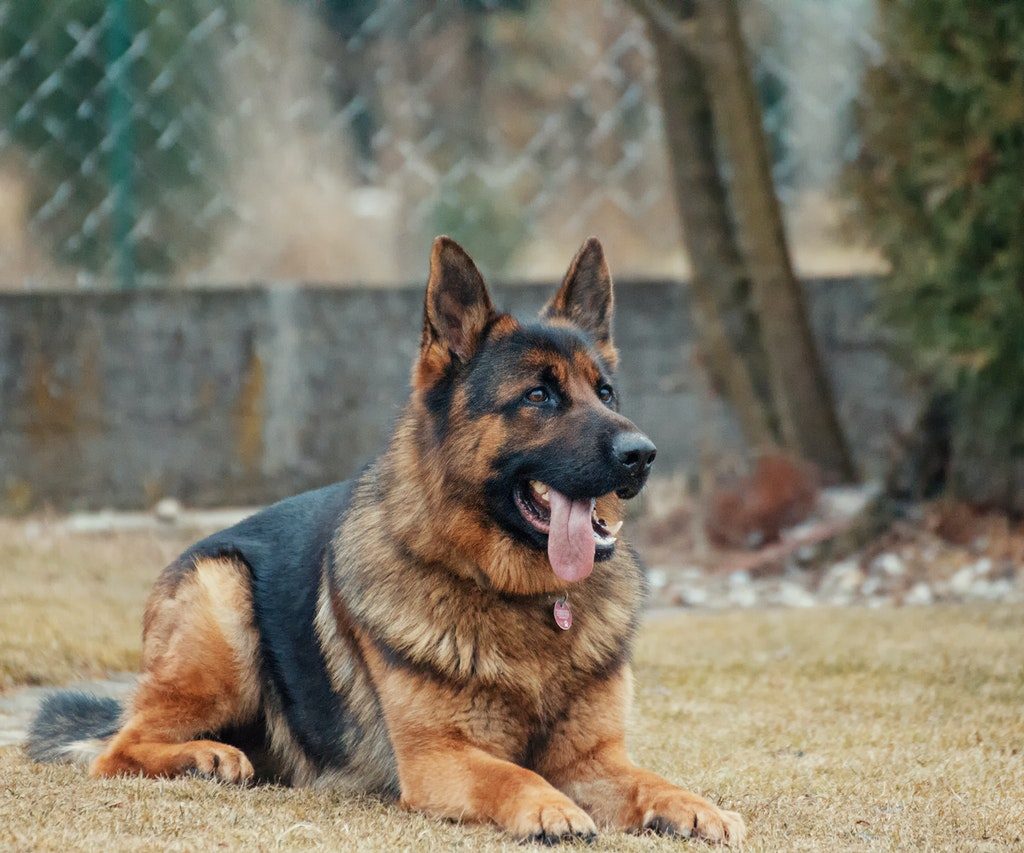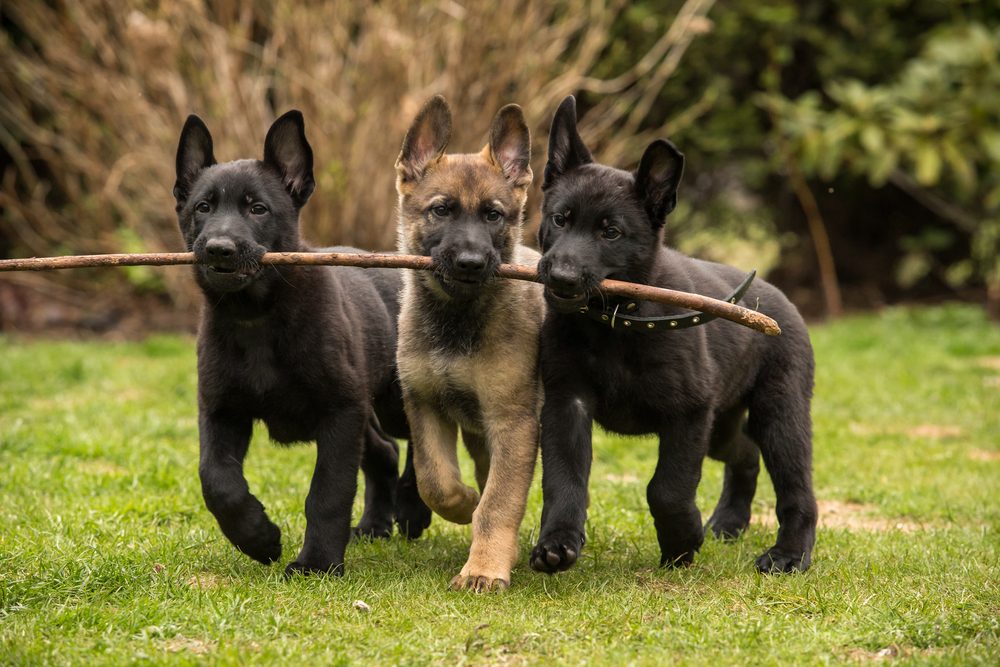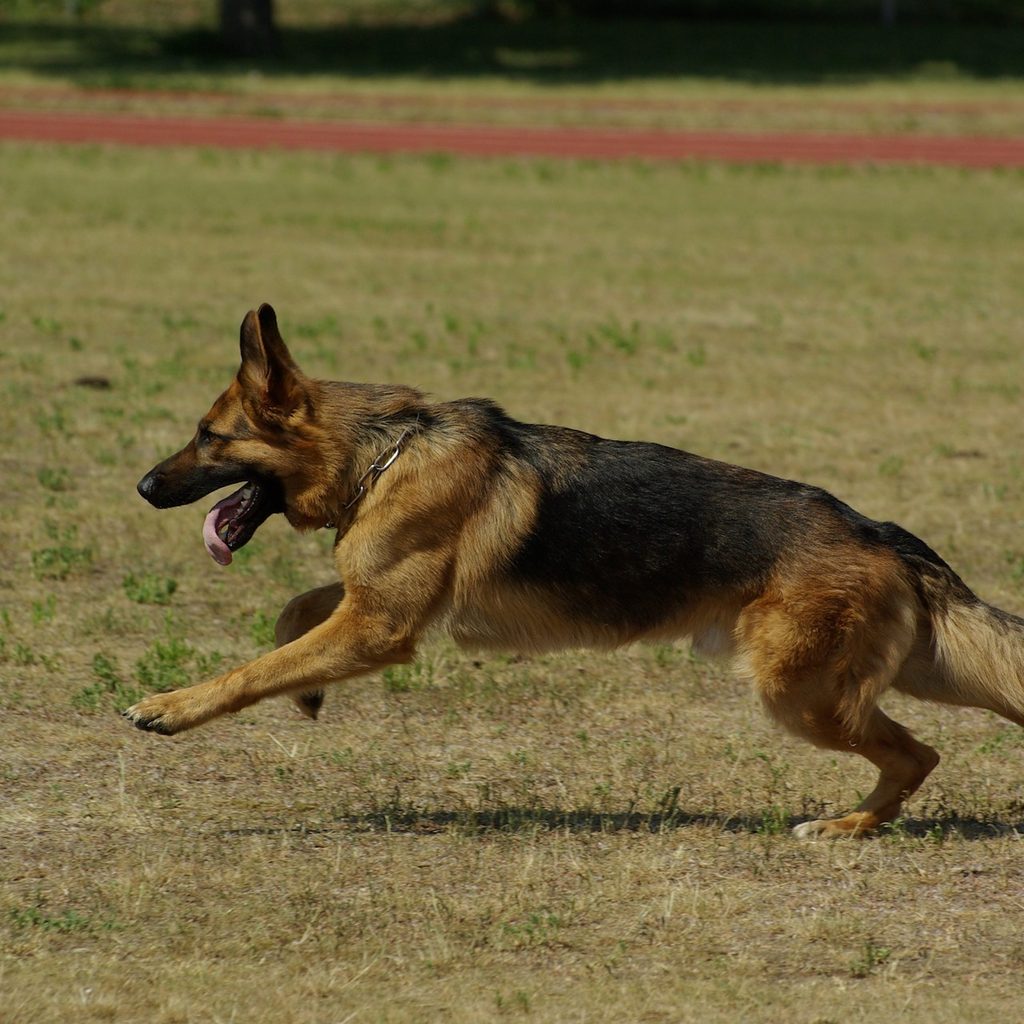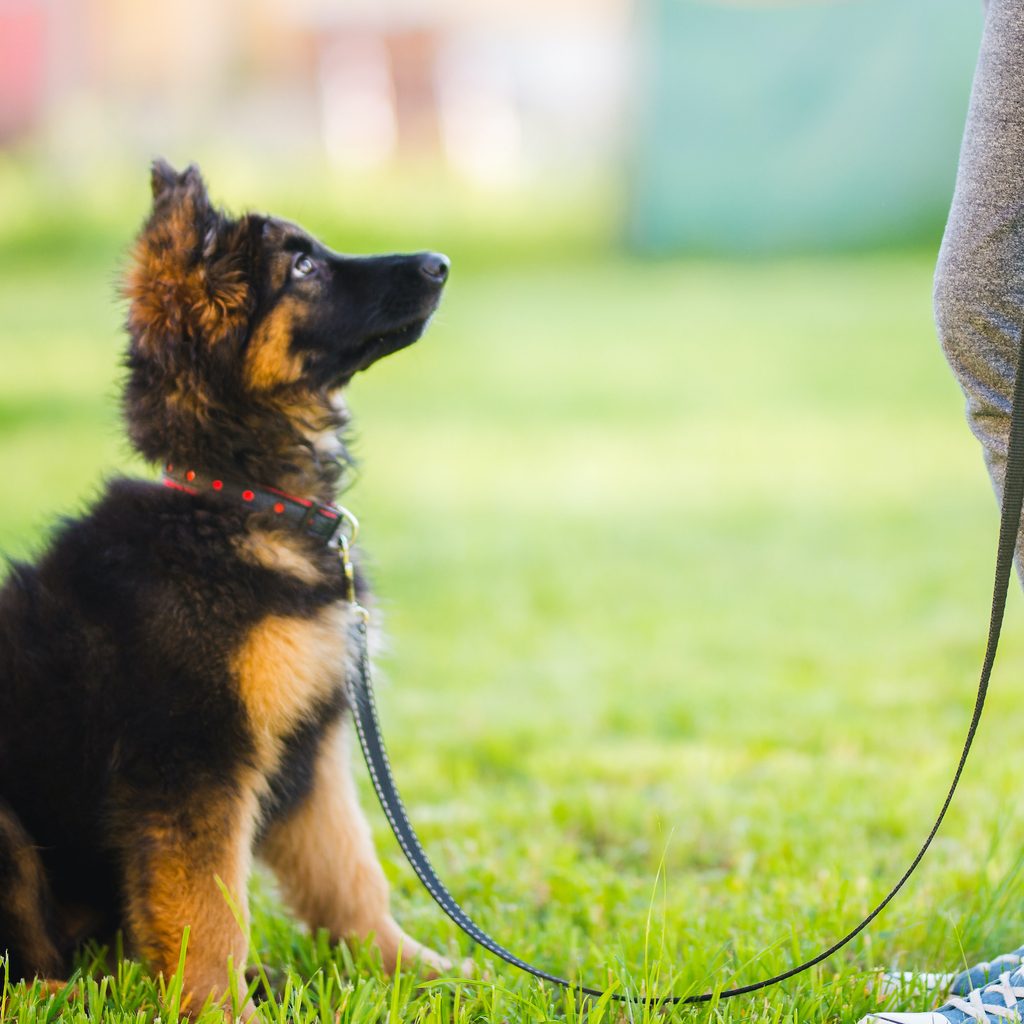
Smart, loyal, and incredibly athletic: These are the defining traits of German shepherds — America’s fourth-most-popular dog breed in 2022. These large dogs are energetic from puppyhood, so it’s no secret that they need a lot of activity to stay satisfied. Exercising your German shepherd might seem straightforward at first glance, but many owners struggle to meet this loyal breed’s high demand for activity. It’s not always clear when a pup needs some extra exercise, but keeping an eye out for the right behaviors will give you a better idea of whether you need to make any changes.
What kind of exercise is best for a German shepherd? How much exercise does a German shepherd need? These are the kinds of questions we’ll answer, so keep reading to find out how to keep your buddy happy and healthy.

How much exercise does a German shepherd need every day, on average?
Although exercise needs vary from dog to dog, German shepherds are an athletic, high-energy breed that requires several hours of daily activity. Generally speaking, your dog will want to play and run off energy multiple times a day, so you can’t count on one long walk being enough.
Remember that your German shepherd needs physical and mental stimulation to stay happy and healthy. Their breed history makes them perfect for herding or working on the farm — hence the name “shepherd” — but not so perfect for lounging around. They’ll need a task for at least part of the day to satisfy their driven minds, or they’ll make one for themselves. If their plan includes your sofa or a favorite pair of shoes, you won’t be so happy.
The American Kennel Club lists problem-solving, decision-making, and focused attention as great ways to keep your dog’s mind active. Puzzle toys can be a helpful tool, though more energetic pups may prefer something like agility challenges. The idea is to give him a task that helps him feel satisfied and accomplished when he finally achieves it — sometimes, just a good run together can do the trick.

Four warning signs that your German shepherd isn’t getting enough exercise every day
Without the ability to use words, your German shepherd can’t tell you when he needs more activity in his life. That’s why it’s up to you to watch for any signs that your dog might need to get out more. These are some of the most common symptoms of a restless dog:
1. Destructive behavior is one way dogs take out their energy and frustration.
Coming home to a room full of torn-up papers and other destruction is understandably frustrating, but it might also cause for concern. If chaotic behaviors seem to increase, especially suddenly, your pup might redirect the excess energy that would otherwise be released through exercise, work, or play.
As unhelpful as this behavior may be, understand that your pet isn’t trying to upset you. He’s simply trying to relieve his boredom with whatever he has — which unfortunately happens to be your possessions.
2. Excessive barking isn’t always about alerting you to possible dangers.
Barking is another way dogs release energy, whether they’re acting out of vigilance or just asking for attention. Since vocalization is a normal part of many working dogs’ tasks, whether it be herding or hunting, it’s not unheard of for these behaviors to make their way into a dog’s everyday life. In fact, a bored shepherd may even try to herd you!
Dogs also bark when looking for a reaction from someone in their environment. They may do this when bored, restless, or trying to communicate. It could simply be one way of expressing hyperactivity — in the same ways restless people tap their foot or pace — or it could be your furry friend trying to initiate petting or play. Pay attention to their body language to figure out what they might be trying to tell you.
3. Weight gain comes with a plethora of dangers, so don’t ignore this problem
One visible sign of a dog’s lack of exercise is their weight. As cute as a chubby pup might be, carrying extra pounds definitely is not healthy for them. These are just a few of the health problems that can come hand in hand with weight gain, according to the American Kennel Club:
- Diabetes
- Heart problems
- Bone and joint issues, including arthritis
- Increased cancer risk
- High blood pressure
- Mobility difficulty
- Respiratory problems
It’s not always noticeable if your pup gains pounds slowly, so this is just one more reason to keep up with your routine vet visits. Remember, “healthy” looks a bit different on every dog!
4. Lethargy and depression are cause for concern no matter what’s causing them
If your German shepherd hasn’t been himself, he may need more exercise. Poor physical health can lead to mental problems like depression, which leaves a pup unmotivated, unhappy, and sometimes unwilling to exercise. You’ll probably notice a change in activity levels and daily routines, such as sleeping or eating. He may lose interest in playtime and his other favorite things or even act lethargic and sleepy. Of course, you might want to take them to a vet to eliminate the possibility of illness or injury.

How to exercise your German shepherd so they get enough activity
For a few dogs, one or two daily walks will satisfy their need for activity, but most German shepherds will not fall into this category. They’ll appreciate having tasks to complete and the chance to release energy through physicality, whether running, hiking, playing with other dogs or even agility drills.
Some of these activities check off physical and mental needs, but your dog will also appreciate having a variety of activities. Even obedience training can be fun and confidence-building for your dog, so there’s no reason not to try it.

How much exercise do German shepherd puppies need? What about senior German Shepherds?
Even though adult German shepherds require multiple hours of exercise daily, younger or older dogs may not have the same needs. Dr. Joel Robertson (DVM) explains that canine metabolism changes as a dog goes through different phases of life. When a dog gets older, for example, a slower metabolism means they require less food to sustain themselves, and also less exercise to burn off their daily calories.
It’s also important not to overexercise an older dog, as they can be at risk for joint issues and exhaustion. Similarly, puppies who are still growing should only exercise in shorter amounts so they don’t risk injuring their developing bodies.
Dr. Robertson published a helpful chart to help German shepherd owners figure out how much exercise their dog may need based on a few average factors. German shepherd puppies under 1 year of age will benefit from about 40 minutes of walking and only 10 minutes of running, while a 5-year-old will need 30-120 minutes of walking and an hour of running every day.
If you feel like your dog is letting you know that it’s time to get outside, try to get creative with your activity time. There’s so much to do and explore together; with the right mental stimulation, your German shepherd won’t even feel like he’s exercising! Your biggest challenge might be keeping up with your athletic furry friend.



